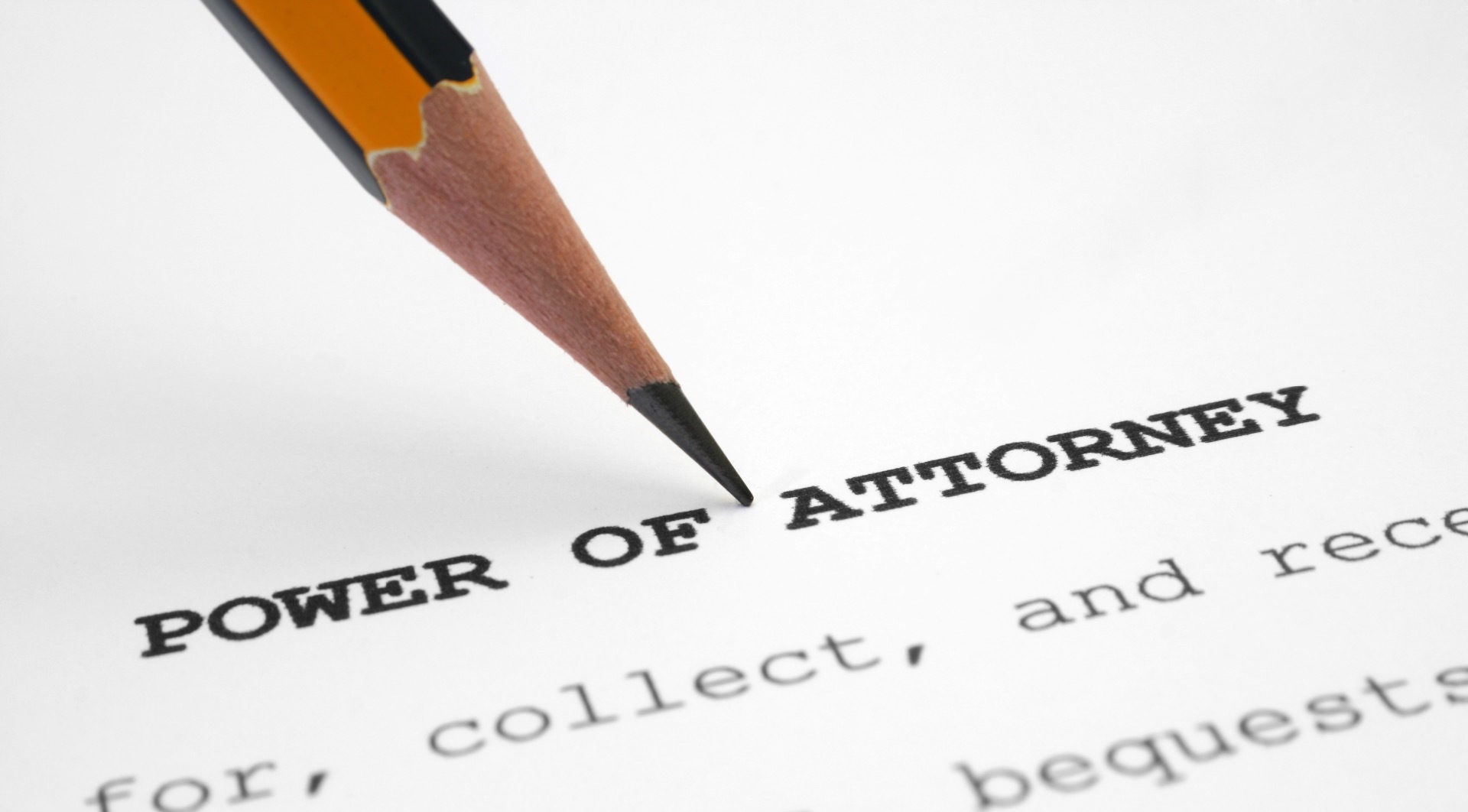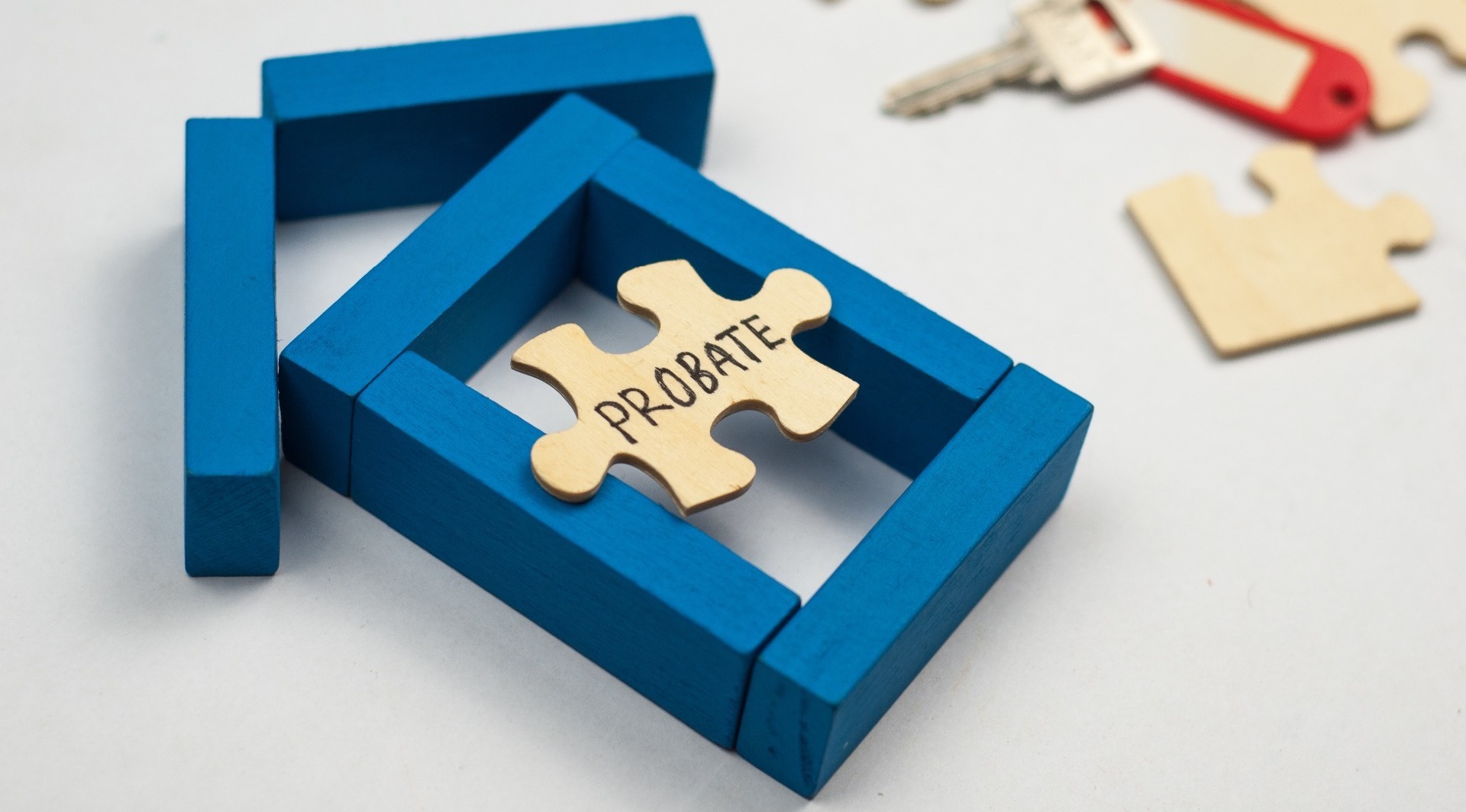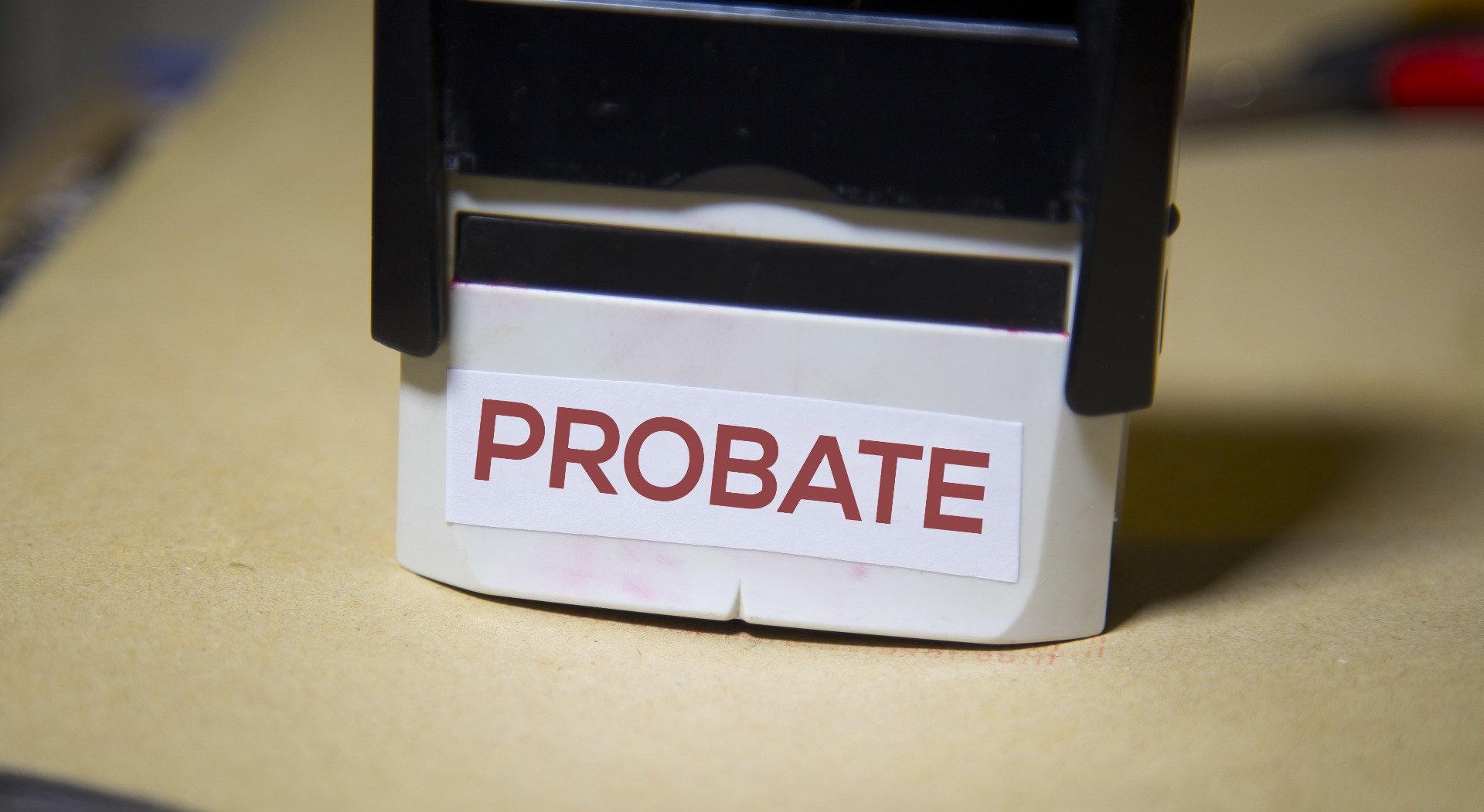MG Legal, Leading Wills and Probate Solicitors. The team that puts you first. Contact us to speak to a solicitor today: 01772 783314 or email at: wills@mglegal.co.uk

Solicitors for the Elderly Accredited

SRA Regulated Solicitors

Decades of experience

Out-of-hours appointments

Home visits available
Wills and Probate Solicitors near me.
It's never too early in life to put plans in place to look after you and your loved ones.
MG Legal's solicitors for Wills are the experts in dealing with all aspects of Wills, Trusts, Lasting Powers of Attorney, Probate matters and Estate Administration. Our Wills and Probate Solicitors offer affordable fixed-fees, and home visits by appointment.
Don't delay planning your future- contact our expert Wills and Probate Solicitors today to find out how we can help.
Call us
01772 783 314
Email us
Visit us
Find your local office, here
Our team are available from 9am to 5pm, Monday to Friday, or out-of-hours by appointment.
Request a callback
How can our Wills and Probate solicitors help you today?
Wills, Trusts and Probate Solicitors in Preston and Lancaster
If you are thinking about writing a Will, need advice in relation to Trusts, or if you are the personal representative of an estate (an administrator or an executor), then MG Legal's expert Wills and Probate solicitors can give you the expert legal advice you need.
Our Wills and Probate solicitors are spread across our three offices, in Garstang, Lancaster and Longridge, and we are proud to say that MG Legal’s friendly Wills, Trusts and Probate team have been rated, by the independent review ‘site, 3 Best Rated, as one of the best Estate Planning Solicitors in Lancaster. At MG Legal, our Wills, Probate and Trusts solicitors know that we all want our wishes to be carried out properly after we die, so if you have any questions, or queries about estate administration, probate, or Wills, then just get in touch online here, and speak to a Wills and Probate solicitor within one working hour.
What Is Inheritance Tax?
Inheritance Tax is a tax payable on someone’s Estate after they have died. A person’s Estate is made up of any property, land, money and possessions that they own when they die.
Who pays Inheritance Tax?
Quite often, beneficiaries of a Will believe that they are liable to pay the Inheritance Tax on their loved one’s Estate, as the money is paid out of the Estate before they receive their Inheritance. However, Inheritance Tax is payable out of the Estate prior to distribution, so the beneficiaries are not paying it themselves.
Normally, beneficiaries will not pay tax themselves on the things they have inherited. However, if you use the assets that you have inherited for certain uses, such as renting out a property that you have inherited, you may be liable to pay tax on the income from this. Our Probate Solicitors in Preston would also point out that if you are in receipt of certain benefits or financial assistance, you may no longer be entitled to receive these. You should notify the organisation in charge of your financial assistance to find out what you need to do.
In some cases, people that you give gifts to may be liable for Inheritance Tax if you have given away more than £325,000 within the 7 years prior to your death. The Executors or Administrators of the Estate will be responsible for dealing with physical payment of Inheritance Tax from the Estate funds.
Who pays the Inheritance Tax?
Inheritance Tax, or at least a certain amount of it, will usually need to be paid before the Grant of Probate or Letters of Administration can be issued.
HM Revenue and Customs offers payment in instalments for certain assets, over 10 years and payable in annual instalments. Once you have made the initial payment, HMRC will usually write to you confirming the instalments, when they are due and the references that you need to use when making payment.
Do I pay Inheritance Tax on my house?
If you pass your home to your civil partner or spouse, there will be no Inheritance Tax to pay. If you leave your home to another person, say your friend or partner who you are not married to, this will count towards the value of your taxable Estate.
A residence nil rate band may be available if you leave your home, or your share in it, to your direct descendants, such as your children (adopted, foster children and stepchildren are included) or grandchildren, and your Estate is worth less than £2,000,000. Currently, this will gift you an additional Inheritance Tax free amount of £175,000, however this amount could increase in the future in line with the Consumer Prices Index. You can read more about the residence nil rate band on gov.uk, here.
Quite often, our Probate Solicitors are asked whether you can transfer a property during your lifetime, and, if this transaction is completed, whether this would affect the Inheritance Tax payable. Normally there will not be any Inheritance Tax to pay if you transfer your property to someone else, and move out of the same, providing that you live for at least 7 years after the transaction has been completed.
If your intention is to continue living in the property after you have given it away, to prevent this from being counted towards Inheritance Tax, you will need to pay rent to the new owner at the market rate (i.e. a similar amount to what rental value other similar, local properties would achieve), pay all or your share of the properties’ bills, and live there for at least 7 years.
When you transfer only part of your property, or if the new owners are going to be living at the property too, you do not need to pay any rent.
What if I do not want to sell a property to pay inheritance tax?
If you have inherited a property under a person’s Will or the Rules of Intestacy, you may not want to sell it to pay the inheritance tax; instead, you may be hoping to move into the property.
If this is the case, you have a few options.
1) You can make payment of the inheritance tax from your own funds. You would not be entitled to claim this payment back from the estate if you intend to keep the property instead.
2) Another option offered by HM Revenue and Customs is paying 10% of the Inheritance Tax due, as well as any interest payable, every year, until the full balance is paid.
If you are unable to pay using either of these options, you may wish to contact our team of Wills, Trusts, Tax and Probate Solicitors to discuss other options available to you.
How do I know if I need to pay inheritance tax?
Whether an estate is liable for inheritance tax will depend on the value of the Estate and, in some cases, gifts that were made by the deceased.
If the value of the deceased’s Estate is below £325,000, there will normally be no inheritance tax to pay. Likewise, if you leave everything above the £325,000 threshold to a charity, your spouse or civil partner, or a community amateur sports club, again there will normally be no tax payable. In addition, if you leave your home to your direct descendants, including adopted, foster and step children, your inheritance tax threshold could increase to £500,000.
If your spouse died leaving everything to you, on your death, your Executors may be able to claim your spouse’s unused nil rate band and residence nil rate band. Therefore, your Estate could be worth up to £1,000,000 before any inheritance tax would be payable.
If your Estate is above any of these amounts (depending on whether you are a single person or married/in a civil partnership), you could be liable to pay inheritance tax of 40% on anything above your threshold. For example, if you are a single person, leaving everything to your child, and your estate is worth £600,000, the first £500,000 could be free from inheritance tax. Your Executors would therefore pay inheritance tax on the remaining £100,000 at a rate of 40%, totalling £40,000.
Obviously, there may be other reliefs or exemptions available to you, and this is why it is always advisable to seek legal advice about your Estate, when you are making a Will. If you need advice about inheritance tax and how much you could expect to pay, our expert team of Wills, Trusts, Tax and Probate solicitors are here to help. Contact our team at your online here, or email wills@mglegal.co.uk. For more information about Inheritance tax, visit gov.uk.
How is inheritance tax paid?
When Inheritance Tax is payable on an Estate, HM Revenue and Customs offer different options for payment. Firstly, before you can pay any inheritance tax, you will need to request an inheritance tax reference. You can do this online, here or by post using form IHT422, available on gov.uk, here.
Once you have this number, one option for payment is the Executor of the Estate. They may be in a position to make payment of the Inheritance Tax on behalf of the Estate, which they can then claim back once the Estate funds have been collected in. For example, if there is no money available until a property is sold or investments have been sold (which could both require a Grant of Probate), they may make this payment to prevent any delays or penalties being incurred.
Alternatively, if there are sufficient funds available in the deceased’s bank accounts or government stock, you can complete form IHT423 to request that the organisation makes direct payment of any inheritance tax due. If you do not know how much inheritance tax to pay, you can make payments ‘on account’. This will be deducted from the final amount of inheritance tax due, once HM Revenue and Customs has calculated this amount.
If the inheritance tax is payable on things that could take some time to sell, for example, a property, you can make payment of the tax due over equal instalments. These are usually payable annually, over a 10-year period. You must select this option on the form IHT400 when you complete this. Once the asset in question has been sold, any inheritance tax must be paid off in full.
When Should I Review my Will?
For many people, the importance of having a valid, up-to-date Will has been highlighted by events over the past two years. At MG Legal, many of our clients like to take advantage of our periodic free Will reviews to check that their Will still meets their requirements as their lives change. When a client asks us when they should be reviewing their Will, our expert Will drafting solicitors explain that you should always keep your Will under review. This does not necessarily mean daily reviews, but ensuring that, if something in your life changes, you review your Will to check it still meets your needs.
For example, if you are getting married or entering into a civil partnership, are expecting a child, purchasing or selling property, if someone named in your Will dies, or if you are separating from your partner, you should review your Will arrangements.
There are different ways to review your Will arrangements. If you do not have a Will in place, the best place to start is to contact the experts and arrange an appointment to discuss your wishes. Our expert Will drafters at MG Legal will talk you through each stage of making a Will, and ask the questions needed to formulate a draft Will on your behalf. Once approved, we will arrange for signature of your Will at your local office, with two members of staff acting as witnesses to your signature.
If you have a valid Will in place, but you need to make some changes, arrange an appointment with our local Wills Solicitors, who can discuss your current Will and the changes you need to make. The most common way to amend a Will is to make a new Will, as our team can ensure that your updated Will incorporates all of the relevant changes in law, if applicable. In addition, the new Will includes a clause which revokes any previous Wills you have made, so your new Will, once signed, will override your previous Wills.
What Happens if I don't Review my Will?
When a person does not review their Will during their lifetime, this can be apparent on their death. In some cases, the Will can be outdated once the person has died, which can make it difficult to administer. If the right people are not dealing with the administration of your estate, this could mean that the estate administration is dealt with incorrectly or there could be disputes between your executors and beneficiaries.
One recent case that our Probate solicitors came across saw a Will which left the entire estate to one person, who had actually died before the person who made the Will. In addition, of the executors appointed, only one was surviving. Unfortunately, this made the estate administration incredibly complex, and led to a dispute between the executor and the beneficiaries entitled to the estate under the Rules of Intestacy.
Can Executors be held liable if something goes wrong?
It is quite easy to assume that if you are dealing with your loved one’s Estate to honour their wishes, you would not be held accountable if you made an error or mistake. Unfortunately, this is not always the case. So, what things can an Executor be held liable for when dealing with an Estate?
As the Executor you would be responsible for dealing with the full administration of the Estate, whether the Estate is worth £100 or £100,000. If you make a mistake when dealing with the Estate, or an oversight means that something that should have been paid has not been, you could be held personally liable for any losses, whether they are those of the beneficiaries, or the creditor of the Estate or whoever else has suffered a loss.
If there is more than one Executor, and you both make the decision to act in the Estate administration, or you are both named on Probate and only one of you actually does the work, you would most likely both be held jointly liable. Therefore, it is clear that acting as an Executor is not an easy task, and it certainly is not the case that you can just expect your co-executor to do everything with no risk to you.
That is why, in the majority of cases, our expert Probate solicitors would recommend seeking legal advice about what you need to do to finalise the Estate. At MG Legal, our team of Expert Wills, Trusts, Tax and Probate solicitors have over 15 years of experience in applying for Probate and dealing with the administration of estates. Therefore, they are aware of most pitfalls and common mistake areas to look out for. As an executor, you are normally entitled under the terms of the deceased’s Will to seek legal assistance to finalise the Estate and whilst you may be worrying about costs, surely it’s better to incur legal fees than to be personally liable for a £100,000 debt that was missed, or to owe a beneficiary £100,000 from your own pocket, if you mistakenly pay money out to the wrong person?
At MG Legal, we offer excellent legal fees, and we can provide you with an accurate estimate of costs at the start of your matter, so that you know what to expect. We will provide you with regular invoices throughout, so that you can keep track of what costs are being incurred, and in many cases, we can agree to limit the total amount of costs that we charge to an agreed amount, so you know that your costs will never go beyond the agreed amount. Contact our team online today, or at your local office, to arrange an appointment to discuss your loved one’s Estate.
What happens if a beneficiary has already died?
A scenario that not everyone will come across is when a beneficiary named in a Will has died before the Testator. What will happen to that share of the Estate will depend on how the Will itself is worded, and our Wills and Probate solicitors have set out some examples, below.
Example 1- A dies leaving their whole Estate to B. Their Will contains a clause which states that if B predeceases them, their Estate will pass to C. In this scenario, if B survives, they would receive the whole Estate. If B has already died, C receives the whole Estate.
However, what happens if B survives, but dies before receiving the whole Estate? Well, in this case, the Estate would still have passed to B, as they survived A, and therefore the whole of A’s Estate would fall into B’s Estate.
Example 2
A dies leaving their Estate to B and C, in equal shares, or to the survivor. If B and C are still alive, they each receive a half share. If B has died, but C is alive, C receives the full Estate and vice versa. If both B and C have died before A, expert probate solicitors would need to consider any substitute provisions contained within the Will. If there are none, the Estate could pass under the Rules of Intestacy, instead.
Like the first example, if either B or C survive A, but die before receiving their share of the Estate, their share would pass into their own Estate and therefore under the terms of their Will. The survivor of them – either B or C – would still be entitled to their own share.
Example 3
A dies leaving their whole Estate to B, with a clause that states that B must survive A for 28 days to receive the Estate. If B survives by 28 days, they receive the full Estate. As above, if B survives for 28 days but then dies, the whole Estate passes into B’s Estate. If B does not survive for 28 days, then we would need to consider any substitute provisions contained in A’s Will, as the Estate would not pass to B.
As can be seen from the above examples, what happens with a person’s Estate if someone named in their Will has already died before them will depend on how the Will is worded.
If the Testator leaves a specific gift, for example, a piece of jewellery, and the beneficiary has already died and there are no substitute provisions made, the gift simply fails and falls into the remainder of their Estate.
If you are dealing with an Estate where a beneficiary has already died you should seek legal advice from an expert Wills and Probate Solicitor. Our team at MG Legal can be contacted online, here, or via email to wills@mglegal.co.uk.
If you have made a Will and one of your beneficiaries has died, contact our expert Will drafters to find out whether you need to update your Will. Contact your local office, here.
How do I find a Will of a deceased person?
1. Search the deceased’s house-
Our local solicitors for Wills would first and foremost suggest searching the person’s house. Usually, if the person has made a Will during their lifetime, either the original document will be in their house or, if they stored the Will with their Solicitor for Wills, there should be some paperwork alluding to a Will being prepared. If the deceased had a safe or secured locked drawers with their important paperwork, start here, and if you have no joy, then work your way around their house. If you believe that you are named as an Executor of a Will, and you need to search the deceased’s home, make sure that you try and obtain the permission of the deceased’s family or the other occupants of the property.
2. Contact the deceased’s Solicitor for Wills
When any of our clients make their Will using our team of local solicitors for Wills, we offer them free Will storage. The majority of our Wills clients will accept this offer, safe in the knowledge that their Last Will and Testament is stored with a professional firm.
If you know that the deceased had made a Will, only the Executors will be entitled to obtain the original document from which ever firm is storing it. The Solicitor for Wills will need the authority of all of the named Executors, as well as proof of their identity, before releasing an original Will. They will also need proof that the person has died. This can sometimes seem like an annoyance to the Executors who have lost their loved one and just want to get on with matters, however, it’s important for our Wills clients to know that their Will would not just be released to anybody, especially whilst they are still alive.
If the Solicitors are no longer in business, you can try and contact the Solicitors’ Regulation Authority, who would usually have a record of who took over the Solicitor’s practice and where the Will is now stored.
3. Contact the Deceased’s Bank-
Sometimes banks or building societies will have an offer, where they draft and store the deceased’s Will or other important documents, such as property deeds. You could contact the deceased’s bank, or previous banks, to find out whether they store a Will. If you are named as the Executor, you could ask them to release the Will to you.
4. Carry out a Will search-
There are companies who can carry out Will searches on behalf of an Estate, to help locate missing or unknown Wills. These companies will usually check with local solicitors for Wills in the area where the deceased lived (and sometimes previously lived, worked or owned a business). They will also check the national Wills database and search over the country, if necessary, to try and locate the Will. You can read more about these searches and the fees charges in our local solicitors for Wills’ article, here.
So, you have exhausted all of the options you can possibly think of to try and locate the deceased’s Will, but you still cannot find it. What happens if the Will cannot be found?
Well, at this stage, the Estate would usually be administered under the assumption that the deceased did not leave a Will. This is called dying ‘intestate’ and would therefore mean that the deceased’s Estate would pass under the Rules of Intestacy. You can use the gov.uk intestacy checker, here, to find out how your loved one’s Estate should pass.
However, our local solicitors for Wills would point out that if you have a copy of the deceased’s Will (but have been unable to locate the original), you may be able to apply for Probate using the copy alone. You should contact our expert team of Probate Solicitors in Preston or Lancaster to discuss how to deal with an Estate using a copy Will, and how much it would cost for our team to assist with the application.
How do you carry out a Will search?
Well, our team of local Wills and Probate solicitors would usually recommend to our clients carrying out a Will search with Certainty, the National Will Register. The cost of a search with Certainty starts from just £45.60. It may seem like a lot, but the expense can be claimed back from the estate, and think of all the money it could save you.
How long does a Will search take?
Certainty will usually contact all of the solicitors in the area where the deceased person lived, and sometimes in the area where they have worked or lived previously. The solicitor holding the original Will is asked to contact the executors of the estate within 28 days, usually. If you have not heard anything in this time, Certainty will contact you.
What do we do if we cannot locate a Will?
If a deceased person did not leave a Will, their estate will be known as intestate. When our team of Wills and Probate Solicitors are dealing with an intestate estate, we would recommend carrying out a Will search. There are different types of Will searches that can be carried out, and one company who can undertake these is Certainty.
You can carry out the following searches:-
A search of the register: (£38.00 plus VAT) Certainty will search the record of Wills that they have, and will confirm whether or not there is one registered in the deceased’s name.
Combined Will search: (£95.00 plus VAT) Certainty will carry out the above search, and will also search nationally for an unregistered Will. This search usually takes 5 minutes to complete, and you can expect to receive results back in between 24 hours and 10 days. If there is no registered Will, it may take up to 28 days to confirm this in the final report.
Protect Will search: (£199.99 plus VAT) Certainty will carry out the searches above, as well as placing section 27 Notices on behalf of the estate.
The combined Will search would help to confirm whether or not there was a Will of the deceased, and would also ensure that if a Will is found in the future, you could prove that you attempted to locate any Will, which could help to indemnify you against any claims from any beneficiaries that were due to inherit under the deceased’s Will.
This search would also be useful if you believe that the deceased made a Will, but are unable to locate this. Again, these costs could be paid out of the Estate.
Will my family have to pay for my funeral?
A common narrative that is seen across the media is that of rising funeral costs, and the burden that will be left on your family to pay for your funeral after you are gone, leaving your loved ones in mountains of debt. This idea is used to sell funeral plans and services. While there is a possibility that your loved ones might be left to handle the finances of your funeral, this is only the case if your estate is not large enough to cover the sum of your funeral costs.
However, as is the case for the large majority of people, your funeral costs will be paid for out of your savings, pension pot, or any other assets that you have. This is a fairly simple process, that our Wills and Probate solicitors regularly guide our clients through who are acting as Executors to a Will. The large majority of banks can directly pay for the funeral costs out of the bank account of the deceased person. The executor of the Will would simply take an invoice detailing the funeral costs to the bank, and the payment would be made directly to the funeral home.
If your bank account at the time of passing away does not have enough money in to cover the costs of the funeral, then this still is usually not a problem, and the burden of the cost will not be transferred to your family. Instead, the funeral home involved will usually be happy to wait for their payment until the assets have been handled, and enough money has been generated by selling of assets to cover the cost of the funeral. All funeral homes work on an individual basis, but most are happy to wait for the estate to be settled and handled before receiving payment, as long as the executor, whether this is a probate solicitor chosen by the deceased person, or a family member, inform the funeral home of the situation.
As our Wills and Probate solicitors have explained above, there are a number of options available when it comes to paying for funeral costs that will not result in a financial burden of any kind being placed on your family and loved ones. Another option, or scenario, that our Wills and Probate solicitors regularly see, is where family members make the decision to front the costs of the funeral, and pay for them at the time, forming an agreement with the Executors to be later reimbursed when the estate is handled. When you instruct MG Legal’s probate solicitors as executors, we will make the process of dealing with your loved one’s estate, including paying for funeral costs, as stress free as possible.
If you are looking to incorporate your funeral wishes into your will, plan for how to avoid your loved ones from facing a financial burden after you are gone, or acting as an executor of a Will, then our specialist Wills and Probate solicitors are here to offer you tailored legal advice today, and guide you through the process. To speak to a Wills and Probate solicitor today about our services, how we can help you, and our clear, fixed-fees, simply contact us online here and speak to a solicitor within one working hour.
Can Executors act when living abroad?
If you are appointed as the Executor of a person’s Will and you live abroad, theoretically, you can still deal with their Estate. However, practically, you may find it best to appoint Probate Solicitors to deal with the majority of affairs on your behalf.
When you are an Executor of a Will, depending on the size of the deceased’s Estate, you may need to obtain Probate, close bank accounts, pay any liabilities or debts, arrange the funeral, sell a property, distribute the deceased’s personal possessions, as well as many other possible jobs. Whilst you could be in charge of how and when these happen, appointing a solicitor could prevent you from needing to make countless journeys to and from the deceased’s home; the Probate solicitors would carry out the tasks (or instruct someone to carry them out, depending on what needed completing), to finalise the deceased’s Estate. And, you do not need to worry about incurring legal fees: as an Executor, you are entitled to incur reasonable legal expenses to help finalise the deceased’s affairs.
Do I have to act as Executor if I am named in the Will?
When you make a Will, you can appoint Executors, who will deal with your Estate after your death. For most people, this would be a loved one, such as a family member or friend, or a professional person, such as our expert team at MG Legal.
When you die, these named people would then be able to make an application for a Grant of Probate, which would give them the legal authority to deal with your Estate, such as closing your bank accounts and paying any liabilities. However, a question that we are often asked by named Executors is whether they have to act in their loved one’s Estate.
Our Wills and Probate Solicitors would explain that even if you are named as an Executor, you do not necessarily have to act. There are a few options available: your co-executor(s) could apply for probate without you – they would need to give you notice of the application, or you could renounce as the executor, providing that you have not already dealt with any administration of the Estate already.
For more advice on applying for Probate, or not acting as an Executor if you have been named in someone’s Will, contact our expert team of Wills and Probate Solicitors online, or contact your local office.
What If I Die Without a Valid Will?
If a person dies without a valid Will in place, their estate will be "intestate". This means that the deceased's estate will not necessarily pass to who they would want it to, but instead would pass under the Rules of Intestacy.
Our expert Will drafting solicitors have discussed the Rules of Intestacy before, however, as a quick guide if you die without a Will, your estate would pass as follows:
If your estate is worth below a certain amount, to your surviving spouse or civil partner (even if you are separated at the date of death).
If your estate is worth above a certain amount, to your surviving spouse or civil partner and children (if any).
If no spouse or civil partner, to your children (or if any of them have predeceased you, to your grandchildren).
To your parents or, if none, your siblings (or if any of your siblings have predeceased you, to their children). If you have no full-blood siblings, your estate would pass to half-siblings, or to their children.
If none, to your grandparents.
If none are surviving, to your aunts or uncles, or to their children, if they have predeceased you.
If none, to your half-aunts and half-uncles, or to their children.
If none, to the Crown.
There are some other considerations that must be had in regards to the above Rules, too. If you have a partner who you cohabit with, under the Rules of Intestacy, they would not inherit anything from your estate. The only way an unmarried, cohabiting partner can receive any provision from an estate is to make a claim under the Inheritance (Provision for Family and Dependants) Act 1975, which could be costly, if disputed.
Does a Legal Professional Need to Draft my Will?
Our expert Probate Solicitors have discussed Do-It-Yourself Wills and their issues previously. Whilst you do not need a legal professional, such as our team of expert Will drafting solicitors, to prepare your Will to ensure it is valid, it is always advisable to seek professional legal advice.
When you instruct a Will drafting specialist to prepare your Will, you are not simply paying for them to draft the document, but you are paying for a full service: the professional, such as our team of Will writers at MG Legal, will consider your circumstances and look at what advice you may need before finalising your Will, such as Inheritance Tax advice, advice about the exclusion of a child, or advice about trust provisions in your Will.
As well as receiving the advice, you are ensuring that your final Will is expertly prepared and signed correctly. You will also receive free Will storage and free Will Registration with Certainty, the National Will Register.
When our prices start from just £175 plus VAT for a single Will, it's clear to see why it is such good value to have the professionals draft your Will.
Why should I appoint MG Legal Solicitors as the executor of my Will?
Selecting the right executor of your Will is a very important decision. Essentially, they will be the ones in charge of sorting out all of your finances, assets, and other belongings after you have passed away. In recent years, it has become more popular than ever for people to appoint their personal solicitor, or another solicitor that they can trust, with being the executor of their Will. There are a number of reasons why this may be more beneficial than appointing a relative or a friend, and we have highlighted some of these points below.
1. Take the burden off of loved ones:
As previously mentioned, taking on the role as an executor of a Will comes with a lot of responsibility. Many people think that they are making a sensible decision by appointing a close relative or friend, but in the long run, they may be causing this person a large amount of stress.
The person in question may well agree to take on the responsibility at the time, but when their close relative has passed away, and they have all of this extra responsibility while they themselves are grieving the loss of someone close to them, it can often become overwhelming.
For this reason, more people than ever are now deciding to appoint a local solicitor who can deal with the process professionally, quickly, and without any emotion attached.
2. Prevent family disputes:
Another problem that our clients often run into when initially appointing a family member as the executor of their Will is unwanted family disputes and tensions. The appointment as an executor can essentially take away the impartial position of a family member, and others may feel that one has been favoured over another. By appointing a professional solicitor for Wills, you can allow them to take control without any family members becoming involved.
3. Avoid mistakes:
With so many responsibilities, it is not uncommon that Will executors can make mistakes throughout the process, and it can be costly for these mistakes to be corrected by the court.
When you appoint our specialist solicitors for Wills, you cut out this risk. There isn’t anything that our experts haven’t seen when it comes to Wills, and they will give each task the attention that it needs without other life responsibilities getting in the way, as a family or loved one might experience.
Why choose MG Legal:

Transparent fees.

We are the experts.

Multiple Office Locations.

Give us a call at any time.
Do we need to declare gifts for inheritance tax?
Whether a gift needs to be declared for inheritance tax purposes will depend on the amount and reason for the gift, and when the gift was made. It’s important to note that gifts do not just include money, but also anything that has a value, such as property and personal possessions. In addition, a gift can also include a reduction in the value of something. For example, if you transfer property to your children at less than market value, the difference in the market value and the amount your children are paying could be classed as a gift for inheritance tax purposes.
For example, if the gifts that were made by the deceased were just small gifts out of their normal income, such as Christmas or birthday gifts, these are usually “exempted gifts”. In addition, if the gift is made between a spouse or civil partner (and they live in the UK), these would also be exempted gifts.
As well as the above, there are a few other “exempted” gifts, including: p to £3,000 worth of gifts each tax year (6 April to 5 April) without them being included in the value of your Estate. This amount is known as an annual exemption. An annual exemption can be carried forward for a maximum of one year.
You can also give away the following every tax year:
A wedding or civil ceremony gift of up to £1,000 per person (increased to £2,500 for a grandchild/great-grandchild and £5,000 for a child)
A normal gift, which leaves you able to maintain your standard of living (such as for a birthday or Christmas present, as mentioned above)
Payments to helps towards another person’s living costs (i.e. an elderly relative or child)
Gift to charities or political parties
These exemptions do not have to be used on different people. For example, you could give money to your grandchild for their birthday and Christmas as well as for their wedding all in the same tax year. Providing that you have not used an exemption on a person already, you can also make small gifts of up to £250 per person, as many times as you want.
If you have made a gift which does not fall under the exempted gift category, it may fall under your Estate for Inheritance Tax purposes.
Depending on how soon before your death the gift was made, will depend on how much tax is payable. After 7 years, there will be no inheritance tax to pay on the gift. This is known as the “7-year rule” and is often confused as relating to payment of care home fees; this is not the case.
For more information about the inheritance tax payable on non-exempted gifts made within seven years before the deceased’s death, visit gov.uk. To discuss inheritance tax and for assistance with calculating the inheritance tax payable on an Estate, contact our expert team online, here, or email wills@mglegal.co.uk.
What is a gift for Inheritance Tax purposes?
A gift could be anything that has a value, such as money, a property or personal possessions, for example, jewellery.
A gift could also be a loss in value when something is transferred. For example, if you sell your house to your children at an undervalue - so for less than it’s worth - the difference in the value is a ‘gift’. You can read about the pros and cons of transferring your property to children at an undervalue, here.
Every tax year, a person can give away £3,000 worth of gifts without them being included in the value of the Estate. This is an annual exemption. The annual exemption can be carried forward to the next year, if it is unused, but only for a maximum of one year.
There are also a few other types of gifts that you can make during one tax year, including:-
A gift for a Wedding or Civil Ceremony of up to £1,000 per person, unless the gift is to a grandchild or great-grandchild, in which case it is £2,500, or £5,000 for a child.
Payments to help towards another person’s living costs, such as an older relative or a child under 18.
A gift to a charity.
A gift to a political party.
These gifts can be to the same person; for example, you could give money to your grandchild for their birthday, Christmas and their wedding all in the same year.
In addition, you are allowed to make gifts of up to £250 per person as many times as you want during the tax year, as long as you have not used that person for another exemption (such as a wedding).
What is the seven year rule for Inheritance Tax?
A common misconception that our Probate Solicitors in Preston hear a lot is that there is a seven year rule for care home fees and gifts made. Unfortunately, this is not the case.
The seven year rule actually applies to Inheritance Tax. It states that, if there is Inheritance Tax to pay, any gifts that you made during the 3 years before you die, that are not exempt, are subject to tax of 40%, like the normal Inheritance Tax rate.
Gifts that are made in the 3 to 7 years before you die are taxed using the taper relief scale:
3 to 4 years - 32%
4 to 5 years - 24%
5 to 6 years - 16%
6 to 7 years - 8%
7 or more years - exempt so 0%
An Example of a Full Estate
Mrs X died on 1st January 2020. She was not married or in a civil partnership, however she had one child.
Her Estate was worth £800,000. She left her Estate to her child, Ms Y, save for a 10% gift to charity of the residue.
The first £325,000 of the Estate is exempt from Inheritance Tax, with Mrs X’s nil rate band.
The next £175,000 of the Estate is exempt from Inheritance Tax on the basis that Mrs X left her main residence to her daughter.
In this case, the remaining £300,000 is subject to a reduced rate of Inheritance Tax or 36%, due to Mrs X’s gift of 10% to charity.
Ms Y, as the Personal Representative, would need to arrange to make payment of the Inheritance Tax of £108,054 from the Estate.
An Example of a Full Estate
Mrs X died on 1st January 2020. She was not married or in a civil partnership, however she had one child.
Her Estate was worth £800,000. She left her Estate to her child, Ms Y, save for a 10% gift to charity of the residue.
The first £325,000 of the Estate is exempt from Inheritance Tax, with Mrs X’s nil rate band.
The next £175,000 of the Estate is exempt from Inheritance Tax on the basis that Mrs X left her main residence to her daughter.
In this case, the remaining £300,000 is subject to a reduced rate of Inheritance Tax or 36%, due to Mrs X’s gift of 10% to charity.
Ms Y, as the Personal Representative, would need to arrange to make payment of the Inheritance Tax of £108,054 from the Estate.
An Example of an Estate with gifts
Mr G died on 1st January 2020. He was unmarried and not in a civil partnership when he died. He did not have any children.
During the 7 years before he died, Mr G made numerous gifts:
1. £150,000 to his sister, 5 years before his death.
2. £200,000 to his friend, 3.5 years before his death.
3. £100,000 to his brother, 6.5 years before his death.
There are no other gift exemptions or reliefs which can be applied to Mr G’s Estate.
As Mr G has an inheritance tax threshold of £325,000, this will be applied in the order that the gifts were made, starting with the first gift of the three - his brother.
As the gift to his brother was £100,000, this leaves £225,000 of the tax free amount. The next gift is to Mr G’s sister, which takes the tax free amount down to £75,000.
The remaining £75,000 can be applied towards the gift to Mr G’s friend. As the final gift of £200,000 was made 3.5 years before Mr G’s death, the rate payable on this gift will be 32%. With £125,000 not falling under the tax free amount, Mr G’s friend will need to pay £40,000 in tax on the gift that was made to them.
Mr G’s remaining Estate was valued at £100,000, which means that the Inheritance Tax payable on this will be £40,000 at a rate of 40%.
What happens after a will search?
If a Will is found during the will search, the deceased’s instructions from the Will must be followed. If you’re appointed as the executor, then you can carry on dealing with the estate. If you’re not, then the person named will generally take over dealing with matters.
If you’ve taken reasonable steps to locate the Will, but none can be found, then you can most likely start to deal with the estate on the basis of it being intestate.
The best thing to do when your loved one passes away, regardless of whether they have left a Will or not, is to contact our Wills and Probate Solicitors today.
You can contact us online here, or email wills@mglegal.co.uk. Our specialist Wills team are available from Monday to Friday, 9am to 5pm, and can be contacted outside of business hours with any new enquiries, by emailing hjordan@mglegal.co.uk.
Our team of solicitors for Wills offer fixed-fee prices in Wills and Probate matters, and can provide as much, or as little, advice that you need.
Why choose MG Legal’s Wills, Trust and Probate solicitors?
Instruct the expertise of our Wills and Probate solicitors, with confidence that you will be provided with a five-star service from our dedicated team.
At MG Legal, our Wills and Probate solicitors pride themselves on being experts in their field. The advice we give is honest, clear, and easy to understand. We are a small firm, which allows us to give your needs that personal touch, and care and attention that each and every client deserves. At MG Legal, you will deal with the same person whenever you ‘phone the office, attend a meeting, or require advice, so you will never be passed around, from person to person. Our Wills and Probate department are a friendly and approachable team who will handle your matter, with care and attention, from start to finish.
Our reviews speak for themselves, confirming why you should choose MG Legal’s solicitors to handle your Wills, Trust and Probate matters. Take a look yourself.
And remember, we offer home visits for our clients who are unable to get to the office. Get it right first time, with MG Legal- your local solicitors.
Expert legal services across England and Wales:
No matter where you are located across England and Wales, MG Legal's expert Wills and Probate solicitors are here to help you to achieve the best possible outcome in your legal matter.

Free Consultation

Nationwide Services

Decades of Experience

No Win No Fee Injury Claims

Multiple Office Locations

Fully-Qualified Solicitors












